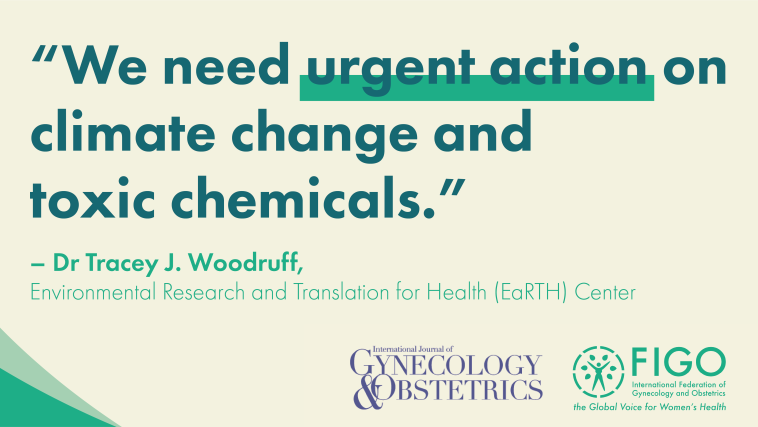IJGO publishes a special section on the impact of global warming on women’s health
IJGO is thrilled to announce its latest IJGO special section, The Impact of Global Warming on Women’s Health, was published in the February 2023 issue of the International Journal of Gynecology & Obstetrics. It is free to access and read for a limited period.

Climate change: the biggest global crisis of our time
The articles in the Impact of Global Warming on Women’s Health special section provide insight into the many facets of the climate change crisis and its diverse effects on women’s health, while also calling for immediate action from the healthcare community to implement more sustainable practices.
This special section touches on a number of key elements in the climate crisis, including:
- Fossil fuel-derived petrochemicals, which contribute to a number of diseases that affect entire populations living in areas or consuming products exposed to dangerous chemicals. They can lead to chronic conditions, metabolic disorders, neurodevelopmental issues and cancer.
- Disproportionate impacts on female health such as increased adverse maternal and child outcomes due to extreme weather, displacement as a result of ecological events, and limited resources, all leading to greater violence and armed conflict, engendering significant impacts on women’s physical safety, mental health and overall well-being.
- Social inequality and discrimination, which will amplify the effects of climate change on populations in lower-income countries, create wider divides for marginalised communities and further exacerbate environmental injustices.
A call to action: the strategic position of health care professionals
With problems come solutions: in this special section, there is an overarching call for change through immediate action. Emphasising the strategic position of the health care community as leaders, the special section provides recommendations to improve medical practices and to enact change on a systemic level.
The special section outlines various solutions to address the harmful effects the climate crisis, all focused on achieving a net zero emissions goal for the healthcare production lifecycle:
- Lower the carbon footprint and greenhouse gas emissions of the healthcare industry.
- Establish more sustainable approaches to developing medical devices and healthcare products.
- Implement training and engagement of healthcare professionals to inform and educate patients on health-related consequences of climate change, as well as any behaviours that they can adopt to mitigate those effects.
- Advocate for further change and solutions in public policy, fuelled by the ethical commitment to reducing harm to patients and improving their health and care.